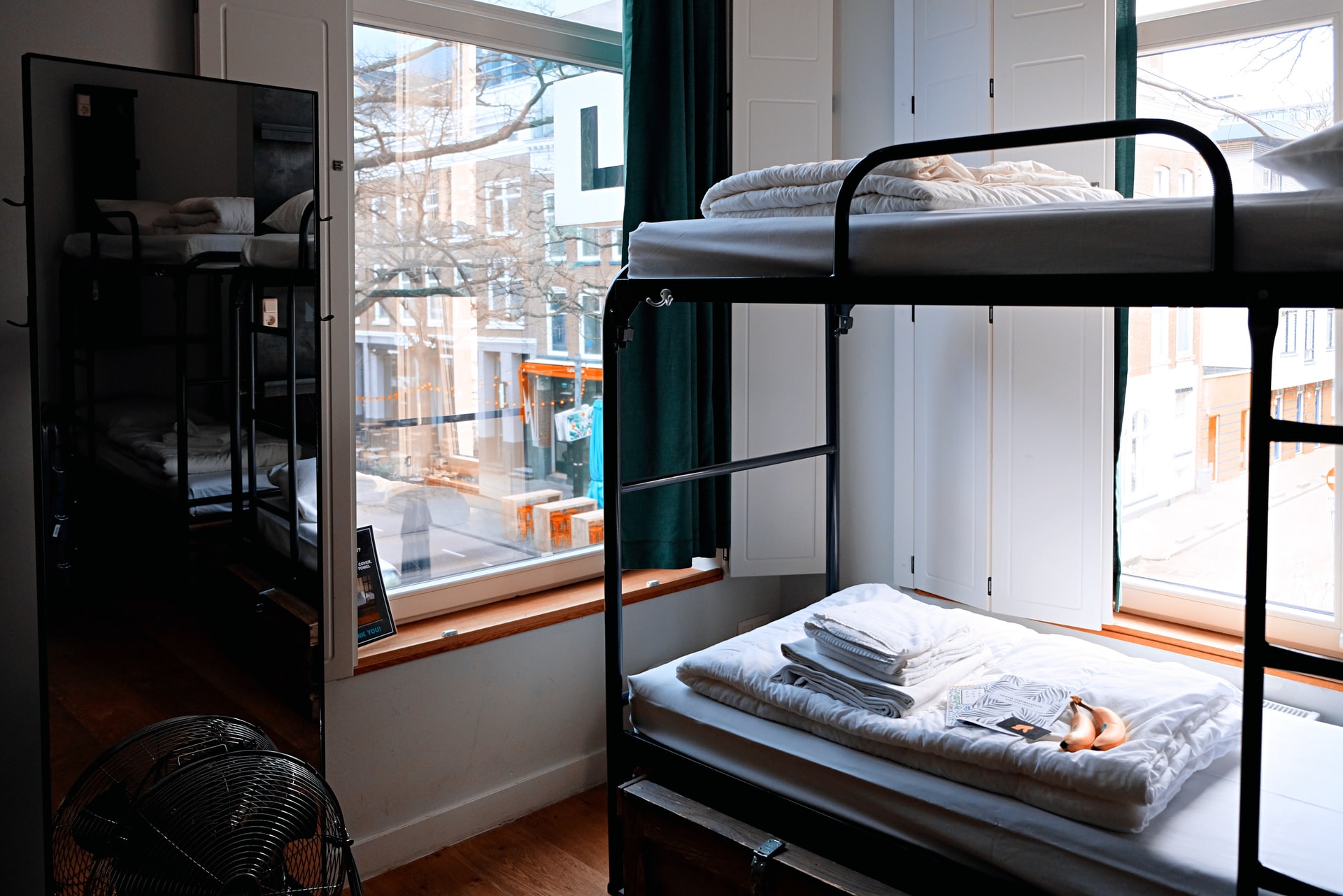Can Sleep Apnea Kill You? Yes!

Realizing someone has stopped breathing while they are sleeping can be a little frightening if you happen to be a first-hand witness. While a number of factors might cause your breathing to stop while you’re asleep, sleep apnea is a typical culprit. Can sleep apnea kill you? is a common question. The response is that it may result in a variety of adverse short- and long-term health effects, some of which may be fatal.
Table of Contents
Can You Die From Sleep Apnea?
Many people with sleep apnea worry that their OSA could make them suffocate while they are asleep. A personal encounter with apnea might definitely make it seem like way. Although all forms of sleep apnea can be fatal, it is quite improbable that one apnea incident would cause you to suffocate to death.
You stop breathing as a result of the tissues in your upper airway collapsing during an obstructive apnea event. You have to wake up and breathe again before you suffocate as a result of this decreasing your blood oxygen levels and causing your body to emit stress hormones.
However, just because sleep apnea by itself is unlikely to result in your death does not indicate that it cannot.
Can Sleep Apnea Kill You?
Your risk of heart attack, stroke, hypertension, and heart failure increases because the same mechanism that wakes you up during an apnea event also causes a sharp increase in heart rate and high blood pressure.
In fact, a research from the Yale School of Medicine found that having sleep apnea raises your risk of dying or having a heart attack by 30% over the course of four to five years.
Other research has demonstrated that having severe sleep apnea raises your risk of stroke by 6% for every point in your AHI and that it predicts an 81 percent increase in sudden cardiac death.
The Wisconsin Sleep Cohort study, which was followed up on, revealed the most alarming finding of all: severe sleep apnea was “significantly related with a 3-fold increased all-cause mortality risk [.]” In other words, having severe OSA increases your risk of dying from any cause by three times.
How might OSA raise your risk of dying from unnatural causes? It is evident how OSA could increase your risk of health issues like heart disease. Keep in mind that sleep apnea symptoms can also be psychological. Your risk of workplace injuries, auto accidents, and even suicide increases as a result of mental impairment brought on by daytime fatigue.
However, that same follow-up estimates that at least 75% of patients with sleep apnea are remain misdiagnosed despite these elevated risks and the accessibility of treatment alternatives.
When you don’t treat sleep apnea
People who do not treat their sleep apnea (either because they are unaware that they have it or because they choose not to):
are at an increased risk of heart attack (Sleep Health Heart Study results, 2001, American Journal of Respiratory Critical Care Medicine), stroke (Sleep Health Heart Study results, 2010, American Journal of Respiratory Critical Care Medicine), and premature death (Sleep Health Heart Study results, 2010, American Journal of Respiratory Critical Care Medicine) (18 year follow-up of the Wisconsin Sleep Cohort, 2008, Sleep)
Additionally, according to Yale University research, those with sleep apnea for up to five years had a 30% higher chance of dying from a heart attack or having a stroke.
The risk of either an attack or death increases with the severity of sleep apnea. 42 percent of fatalities in persons with severe sleep apnea were caused by heart disease, according to the Wisconsin Sleep Cohort follow-up study that was published in Sleep in 2008. An apnea-hypopnea index (AHI) score of 20 or more respiratory episodes per hour is considered severe in clinical terms.
Furthermore, the risk of cardiac death was more than five times higher in those with untreated severe sleep apnea compared to those who did not have sleep apnea.
The New England Journal of Medicine published research findings in 2005 that people with sleep apnea are more likely to experience sudden cardiac events that cause death in their sleep, as opposed to most people who die from heart attacks (but who do not have sleep apnea) who experience these events during the day. Low blood oxygen levels cause spikes in blood pressure, oxidative damage to the heart’s walls, and disruptions to the electrical rhythms of the heart, as can high blood carbon dioxide levels.
6 Ways Sleep Apnea Can Harm Your Health
1. High blood pressure.
Sleep apnea can exacerbate it if you already have it. Your body becomes stressed out if you wake up frequently at night. Your hormone systems go into overdrive as a result, raising your blood pressure. Additionally, difficulty breathing can cause your blood’s oxygen level to fall, which could make matters worse.
But treatment can have an impact. When sleep apnea treatment is received by some persons with high blood pressure, their blood pressure may improve. Their doctors may be able to reduce the dosage of their blood pressure drugs. (However, you shouldn’t stop taking it or modify your dosage without first consulting your doctor.)
2. Heart illness.
Heart attacks are more likely to occur in people with OSA.
Low oxygen levels may be to blame. The disease is also related to strokes and atrial fibrillation, a rapid, fluttering heartbeat.
Because sleep apnea interferes with your body’s oxygen intake, your brain has a difficult time controlling the flow of blood to your arteries and the brain.
3. Diabetes type 2.
People with this illness frequently have sleep apnea; 80 percent or more of them may have OSA.
A person’s risk for both illnesses is increased by obesity. Although research has not shown a cause-and-effect relationship between sleep apnea and type 2 diabetes, a lack of sleep can prevent your body from correctly utilizing insulin, which can result in diabetes.
4. A rise in weight.
Sleep apnea is more likely to develop if you are overweight, and the condition makes it more difficult to lose weight.
Fatty buildup in the neck of an overweight person may prevent nighttime breathing. On the other hand, sleep apnea might cause your body to release more ghrelin, a hormone that makes you crave sugar and carbohydrates. Additionally, if you are constantly exhausted, it may be difficult for you to convert food into energy as effectively, which might result in weight gain.
the positive news You may feel better after receiving OSA treatment, having more energy for physical activity and other pursuits. Your sleep apnea may improve if you use this method to help you lose weight.
5. Metabolic syndrome.
These are the medical diseases that have been connected to OSA. If you have at least three of these conditions, you have metabolic syndrome:
- elevated blood sugar
- insufficient “excellent” HDL cholesterol
- High blood fat levels called triglycerides
- You have too much belly fat
- elevated blood pressure
Speaking with your doctor about treatment options and healthy lifestyle modifications is crucial since metabolic syndrome increases your risk of developing heart disease, diabetes, or stroke.
6. Adult asthma.
Although there is no scientific evidence linking OSA to asthma attacks, persons who receive sleep apnea therapy may discover that their attacks are less frequent.
Takeaway: Sleep apnea Warning Signs and When to See a Doctor
Because it occurs while you are asleep, it can be challenging to diagnose sleep apnea. One or more of the following symptoms is the most typical way for people to get a suspicion of OSA:
- A loud snore
- waking awake gasping for air or choking
- frequently awakening with a painful throat or dry mouth
- regular headaches in the morning
- excessive slumber during the day
- Changes in mood and irritation
- difficulty paying attention
- gaining weight
Any interruption to your awake hours when it comes to sleep disorders is cause for consultation with a healthcare provider. A sleep study may be advised by your doctor or a sleep specialist; it can be completed in a lab setting or even in the convenience of your own home.
In the event that the research reveals that you have sleep apnea, your doctor will probably recommend a CPAP machine. Continuous positive airway pressure, often known as CPAP therapy, employs a stream of airflow to maintain your airways open so you can breathe while you sleep.
Because it is both efficient and non-invasive, CPAP is regarded as the first line of defense against OSA. But you should be aware that there are alternative treatments for sleep apnea, such as oral appliances, positional therapy, and surgery, if your concern about being dependent on a CPAP machine has prevented you from getting tested.
Talk to your sleep medicine physician about your preferences and concerns because your treatment options will depend on the kind and severity of your sleep apnea as well as any additional health conditions or risk factors you may have.

CPAPsupplies.com is available to you regardless of the course of therapy you select. We have everything you need to have a good night’s sleep, from CPAP machines and masks to custom-fit oral appliances and positional sleep aids. Don’t spend any more nights worrying about if sleep apnea may kill you.


















![Nectar Premier Copper Mattress Review In 2022 [Updated]](https://www.myspacebeds.com/wp-content/uploads/2022/09/Nectar-Premier-Copper-Mattress-Review-In-2022-Updated.jpg)

![Dr. Oz Good Life Mattress Reviews In 2022 [Updated]](https://www.myspacebeds.com/wp-content/uploads/2022/09/Dr.-Oz-Good-Life-Mattress-Reviews-In-2022-Updated-2.jpg)
